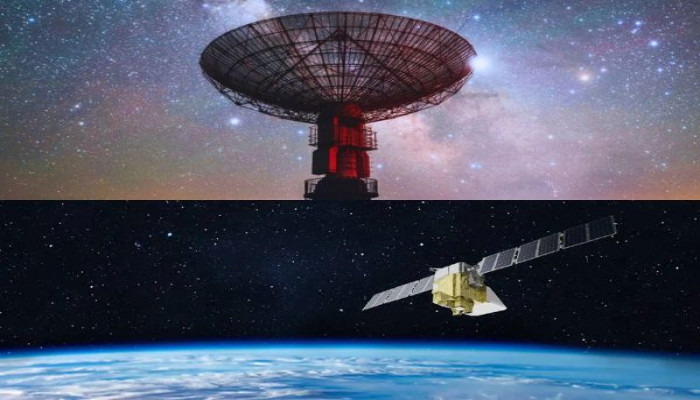India removes Chinese-linked satellites from communication networks
- In Reports
- 06:04 PM, Nov 06, 2025
- Myind Staff
India has started removing satellites with Chinese ownership or links from its communication and broadcasting networks as part of a larger effort to secure the country’s space sector from potential geopolitical risks, the Economic Times reported on Thursday.
As per the report, the Indian National Space Promotion and Authorisation Centre, or IN-SPACe, which functions under the Department of Space, has rejected proposals from Chinasat, ApStar, and Hong Kong-based AsiaSat to provide satellite capacity to Indian broadcasters and teleport operators.
AsiaSat, which has operated in India for over three decades, currently has permission for only two satellites, AS5 and AS7, valid until March 2026. Approvals for its other satellites, AS6, AS8, and AS9, have been turned down.
A person familiar with the development told the Economic Times that broadcasters like JioStar and Zee, along with teleport operators, have been asked to move from AsiaSat-5 and AsiaSat-7 to other satellites, such as India’s GSAT or the US-based Intelsat, by March next year.
“These companies have already begun shifting to avoid service disruption,” the person said.
Zee confirmed to the Economic Times that it has already shifted its broadcasting services to GSAT-30, GSAT-17, and Intelsat-20 satellites.
“This move happened by mid-September 2025. As of now, we do not have any services on AsiaSat-7,” a Zee spokesperson said.
IN-SPACe, JioStar, and ApStar did not respond to ET’s queries. AsiaSat, however, is trying to renew its licence to continue operations in India.
Rajdeepsinh Gohil, Managing Director of Inorbit Space, which represents AsiaSat in India, told ET that the company has applied for an extension of AsiaSat-5 and 7’s C-band operations and has held several meetings with IN-SPACe officials, including its chairman.
“IN-SPACe has not given any reason for declining long-term authorisation, though it has acknowledged AsiaSat’s contribution to India over the last 33 years,” Gohil said.
“There is no history of AsiaSat non-compliance in India. All prior uplinks on AsiaSat satellites were approved by MIB, DoT, DoS and MHA,” he added.
Under India’s new regulatory policy, all foreign satellites now need direct authorisation from IN-SPACe to operate in the country. Officials quoted by ET said that India has developed enough domestic satellite capacity through the GSAT programme, which means broadcasters no longer have to rely on Chinese-linked satellites as they did earlier when capacity was limited.
Several foreign operators, including Intelsat, Inmarsat, Starlink, OneWeb, IPStar, and OrbitConnect, have already been approved to offer communication and broadcasting services in India.
Officials told ET that space has become a critical part of national security, and the government is now focusing on expanding the country’s own satellite capacity and infrastructure.







Comments